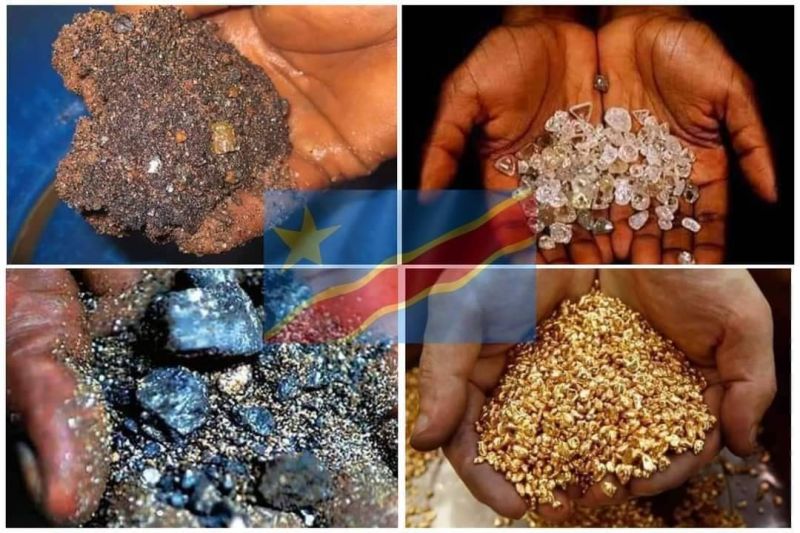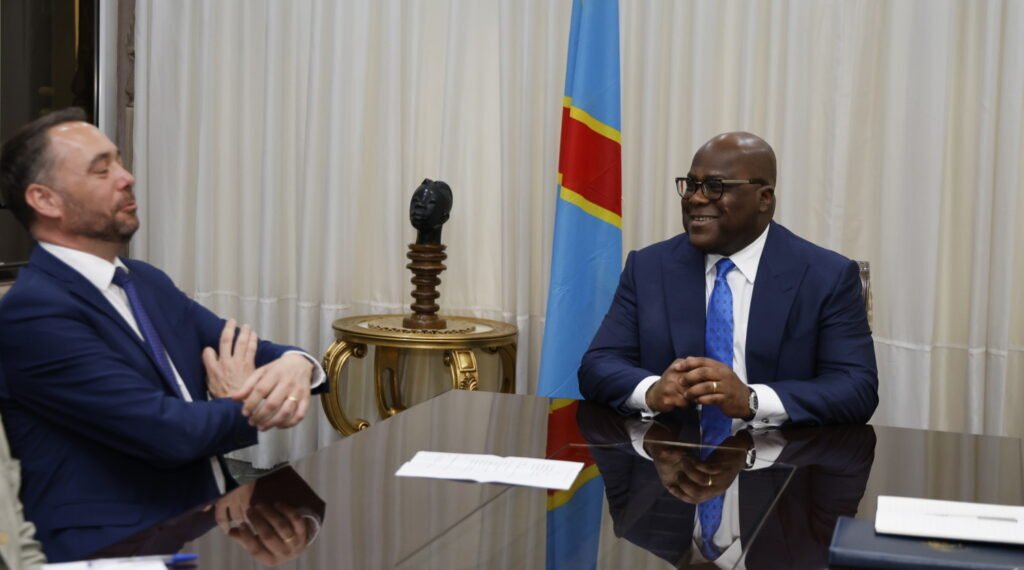As the crisis in the eastern Democratic Republic of Congo (DRC) intensifies, Belgium’s Deputy Prime Minister and Minister of Foreign Affairs, Maxime Prévot, has wrapped up a critical diplomatic tour of the Great Lakes region.
His final stop in Kinshasa, following visits to Uganda and Burundi, centered on addressing escalating tensions between Congo and Rwanda, and the international efforts to mediate the situation.
In Kinshasa, Prévot held high-level talks with Congolese President Félix Tshisekedi and newly appointed Prime Minister Judith Suminwa. Discussions were dominated by the ongoing conflict in the DRC’s eastern provinces, where Rwandan-backed M23 rebels continue to destabilize the region.
During the meeting, Prévot expressed support for recent diplomatic initiatives, notably those led by Qatar and the United States, which have brokered preliminary understandings between Kinshasa and both the M23 rebel group and Kigali. However, he emphasized the importance of tempered expectations and continued scrutiny.
“We must be cautious about the steps taken by Doha and Washington. While we welcome these initiatives with optimism, it is essential to assess the tangible results that could emerge in the coming days or weeks. This will ensure that, even if a path has been opened, it will continue to be followed, without major obstacles, to achieve the desired objective.”
Maxime Prévot
The Belgian Foreign Minister differentiated his country’s stance from that of other foreign actors, highlighting Brussels’ commitment to long-term partnership over short-term resource gain. “Unlike other international actors who adopt a more transactional approach, Belgium has no intention of draining the resources of the Democratic Republic of Congo,” he stated. Prévot also urged President Tshisekedi to prioritize domestic-led peacebuilding efforts alongside international negotiations.
Minerals Deal Sparks Global Strategic Shift
Meanwhile, Congo’s mineral-rich landscape is taking center stage in a bold new geopolitical maneuver. The United States and the DRC are close to finalizing a minerals-for-security pact that could reshape global resource alliances. The proposed deal will see American companies gain privileged access to the DRC’s critical mineral reserves — cobalt, lithium, and germanium — in return for U.S. military support aimed at repelling the M23 insurgency.

The agreement, led by U.S. Senior Adviser for Africa Massad Boulos, includes provisions for military training, strategic equipment, and potential troop deployments. While detailed terms remain confidential to prevent “tipping off the enemy,” the deal reflects Washington’s intent to diversify away from Chinese-controlled supply chains. Currently, China dominates nearly 70% of Congo’s mining industry.
Strategically, the minerals-for-security pact carries implications for global energy and technology sectors. American firms like Freeport-McMoRan are already eyeing cobalt extraction opportunities, while a separate 2025 partnership between Congo’s state-owned Gécamines and Belgium’s Umicore is expected to supply 30% of global germanium demand. Revenue-sharing provisions in the U.S.-Congo pact guarantee 10% of profits for local community development, and blockchain monitoring will be introduced to curb smuggling and improve transparency.
However, concerns linger over the ethical and economic sustainability of such agreements. Critics recall Congo’s 2008 mineral deal with China, which, according to NGOs, cost the country over $132 million in underpayments in 2024 alone. Civil society voices, such as Jean-Claude Katende of the CNPAV coalition, said: “The DRC must avoid trading one extractive partner for another.”
Adding to the scrutiny, a separate contract signed with controversial security figure Erik Prince for tax enforcement has drawn criticism, though Congolese officials maintain it does not cover conflict zones.
While supporters argue the U.S. deal could bolster regional stability and economic revitalization, experts caution against overreliance on military interventions in a region plagued by deep-rooted geopolitical and ethnic rivalries. Ultimately, the success of the minerals pact will hinge on transparency, equitable distribution of benefits, and the inclusion of local stakeholders.
READ ALSO: Cedi Rebounds Strongly, Gains Over 6% in Two Days




















